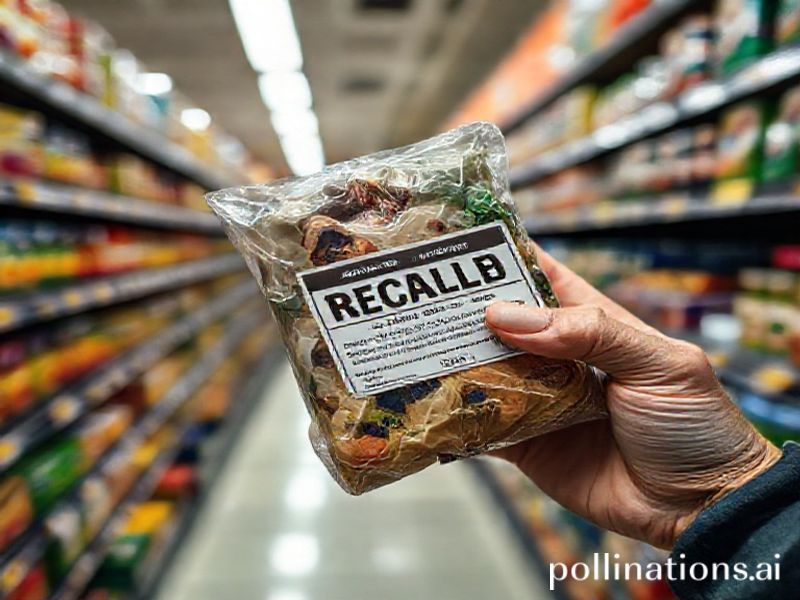From Farm to Fork: The Global Food Recall Frenzy That’s Got Us All Side-Eyeing Our Snacks
# **From Farm to Fork: The Global Food Recall Frenzy That’s Got Us All Side-Eyeing Our Snacks**
In a world where we can track our Uber Eats delivery in real-time but still end up with a mystery meat taco, it’s no surprise that food recalls are trending globally. Whether it’s contaminated spinach, suspect salmon, or even a rogue batch of your favorite childhood cereal, food recalls have become the ultimate plot twist in our daily lives. But why are they suddenly everywhere, and why should we care? Let’s dive in, shall we?
### **The Great Recall Wave: Why Now?**
Food recalls aren’t exactly new, but their frequency and visibility have skyrocketed in recent years. Thanks to social media and 24/7 news cycles, we’re now inundated with updates about the latest food scare. Whether it’s a viral tweet about a recalled bag of chips or a TikToker dramatically dumping their contaminated yogurt, these recalls have become a part of our digital diet.
But why the sudden surge? Experts point to a few key factors:
1. **Better Detection, More Transparency**: Advances in food safety technology mean we’re catching contamination faster than ever. Plus, governments and companies are under pressure to be more transparent, so recalls are announced publicly sooner rather than later.
2. **Global Supply Chains**: Our food travels farther than ever before, increasing the risk of contamination at any point along the way. A single bad batch in one country can quickly become a global crisis.
3. **Consumer Awareness**: We’re more health-conscious than ever, and social media has given us a platform to voice our concerns. If one person finds a suspicious bug in their salad, the whole internet knows about it within minutes.
### **Cultural Context: From Panic to Memes**
Food recalls have become a cultural phenomenon, sparking everything from panic to parody. Remember the great “Romaine Lettuce Recall of 2018”? It was so widespread that people started joking about it on Twitter, with memes like “I miss salad” and “Is it safe to eat lettuce yet?” becoming viral sensations.
And let’s not forget the infamous “Kinder Egg Recall” of 2022, which had parents across the globe frantically checking their kids’ Easter stashes for signs of salmonella. The internet, of course, responded with a mix of concern and dark humor, with memes comparing the recall to a real-life Easter egg hunt for bacteria.
### **Social Impact: Trust, Safety, and Snacking Anxiety**
Food recalls have a real impact on our lives, beyond just the occasional panic attack at the grocery store. They erode trust in food brands and regulatory systems, making us question everything from our favorite chips to the apples in our lunchboxes. For businesses, recalls can be devastating, leading to lost sales, damaged reputations, and even legal battles.
But there’s a silver lining. Food recalls also push companies to improve their safety standards and give consumers more power. We’re more informed than ever about what we’re eating, and that’s a good thing—even if it does mean we now spend an extra 10 minutes scrutinizing the expiration date on our almond milk.
### **Why This Topic Matters**
Food recalls are more than just a trending topic; they’re a reflection of our modern food system. They highlight the complexities of global supply chains, the power of social media, and the delicate balance between safety and convenience. Plus, they give us plenty of material for memes, which, let’s be honest, is a cultural necessity.
So the next time you see a food recall trending, don’t just scroll past it. Take a moment to appreciate the absurdity, the drama, and the very real impact it has on our lives. And maybe, just maybe, check your pantry for any suspicious-looking snacks while you’re at it.
—







